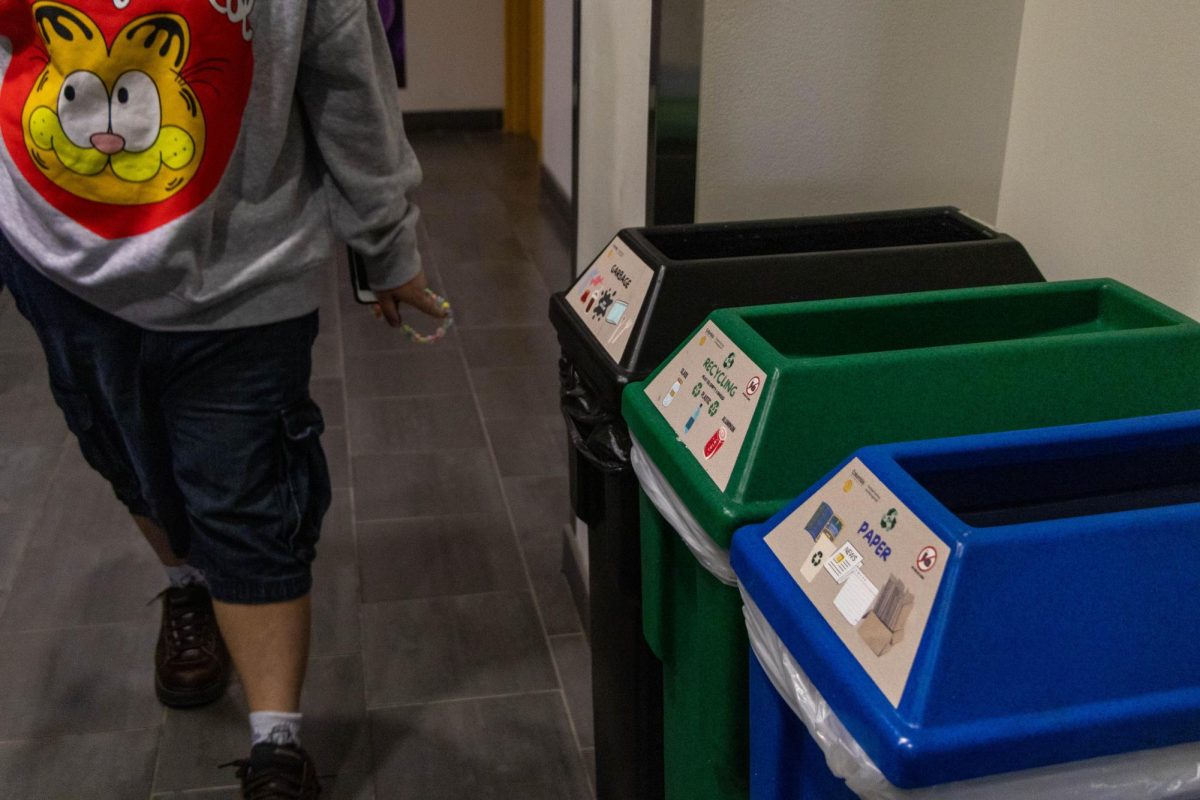This week on Chronversations: NBCU Academy hosts summit at Columbia where students from around the world can learn more about AI in journalism.
TRANSCRIPT
0:11
Welcome to The Chronicle Chronversations. I’m your host, Aaron Guzman for Campus News.
0:16
This week, NBCU Academy hosted a summit in the 1104 South Wabash building where students from around the world can learn about the future of artificial intelligence and how it affects the future of work
and journalism. Chief Digital Officer of NBC Universal News Group Chris Bend provides more insight on how AI is used in media without giving misinformation and ensures that AI is not the main part behind their work.
0:41
“It certainly, within the world that I live in with my colleagues every day in the news space in particular, the rise of generative AI over the last 12 to 18 months has really brought to the fore this issue of mistrust in media and fundamentally knowing what’s real and what’s not. Part of the mission of journalism is to get people to the truth, and so it’s, it’s put an extra challenge in front of us. Put aside the benefits of it and potentially the way we work, but the ecosystem with which journalism and news functions in a series of challenges around trust right now and generative AI is really sort of amped that up, right. And it’s, it’s made the bar higher for us to make sure that our journalism is unimpeachable and that we make sure that consumers know that there are real people doing the work behind the journalism.”
1:29
MSNBC President Rashida Jones shows how dangerous AI can be in the midst of an election season and how it can be used to spread misinformation in favor of certain candidates.
1:39
“Misinformation, disinformation has been a problem for a long time.
1:42
I can think back the last couple of elections, we’ve had to put specific procedures in place to ensure what we were reporting is, is accurate.
1:49
What we were reporting is, is a reflection of what’s happening out in any given precinct or, or a voting location, but also that our own content isn’t being manipulated.
1:59
So this is something we think about on an ongoing basis, particularly during election cycles where there are some people who are incentivized to misrepresent content.
2:07
And so our filters, both technological but also editorial or, you know, if something feels, all of the usual things that we think about, something feels too wild and out there, take a second look.
2:16
But the challenge of this new cycle and I and I, I don’t say this lightly, everything feels nonsensical. Every time a story breaks you all, I always stop and say, ‘Wait, what did that really happen?’
2:26
Unfortunately, many times it’s accurate, but we have to go through these filters to ensure what we’re bringing to the audience is, is accurate.
2:32
And I think it’s particularly important during election cycles and for an organization like ours, because the moment you violate that trust, the moment you make a mistake and something inaccurate gets out there and it’s on your watch, under your brand, it just erodes your credibility with the audience.
2:46
So we’ve got teams that are focused just on this. We have teams that are focused on parts of the, the, the internet that I dare not go into myself because we wanna make sure anything that comes through our brand is a reflection of the truth.
2:56
Part of the value that we bring as journalists and part of the value that you can’t replicate with computers is the human aspect.
3:02
And so if you’re able to use technology to help streamline some of the more routine things like some of the data gathering, if you’ve taken a lot of that off the table, what does it open up for you in the way of bringing humanity to your reporting?
3:16
Finding the people’s story isn’t something a computer can do.”
3:19
Be sure to check out our stories on columbiachronicle.com.
3:23
Sign up for our newsletter at columbiachronicle.com/newsletter and check out our new three C’s podcast where we give credible information to our students.
3:31
I’m Aaron Guzman, thanks for listening.
Copy edited by Angel Marie Guevara











